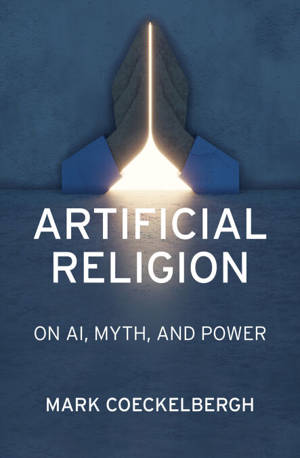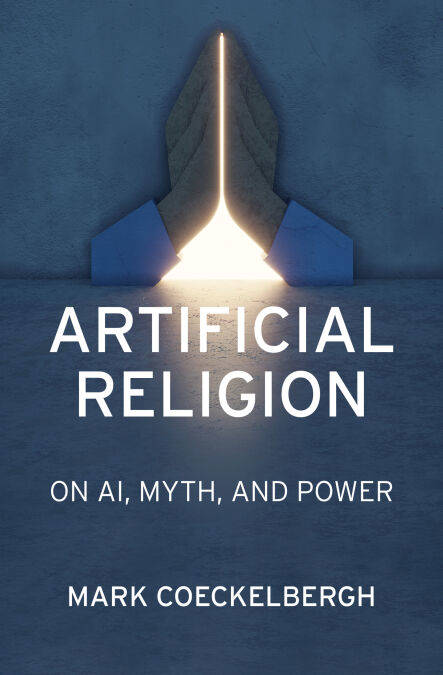
Je cadeautjes zeker op tijd in huis hebben voor de feestdagen? Kom langs in onze winkels en vind het perfecte geschenk!
- Afhalen na 1 uur in een winkel met voorraad
- Gratis thuislevering in België vanaf € 30
- Ruim aanbod met 7 miljoen producten
Je cadeautjes zeker op tijd in huis hebben voor de feestdagen? Kom langs in onze winkels en vind het perfecte geschenk!
- Afhalen na 1 uur in een winkel met voorraad
- Gratis thuislevering in België vanaf € 30
- Ruim aanbod met 7 miljoen producten
Zoeken
€ 29,56
+ 29 punten
Uitvoering
Omschrijving
How AI is shaped by Western religious culture and universal existential aspirations—and why we think we need it in the first place.
Artificial Religion argues that to fully understand our puzzling relation to AI, we must first look at the religious and existential background of our thinking about machines. Mapping some surprising connections between our history of thought about machines and Western religious narratives to political issues and existential human needs and aspirations, Mark Coeckelbergh offers a better understanding of our relationship to machines and why we think we need them at all.
The book is unique in not just discussing the myth of AI in terms of its technical limitations and the power of Big Tech but also revealing the deeper cultural “grammar” of AI—that is, the religious patterns of thinking and existential aspirations that are often not visible but still haunt Western thinking and shape its technological culture. Moreover, this is done in a way that sheds critical light on the power of AI.
Artificial Religion argues that to fully understand our puzzling relation to AI, we must first look at the religious and existential background of our thinking about machines. Mapping some surprising connections between our history of thought about machines and Western religious narratives to political issues and existential human needs and aspirations, Mark Coeckelbergh offers a better understanding of our relationship to machines and why we think we need them at all.
The book is unique in not just discussing the myth of AI in terms of its technical limitations and the power of Big Tech but also revealing the deeper cultural “grammar” of AI—that is, the religious patterns of thinking and existential aspirations that are often not visible but still haunt Western thinking and shape its technological culture. Moreover, this is done in a way that sheds critical light on the power of AI.
Specificaties
Betrokkenen
- Auteur(s):
- Uitgeverij:
Inhoud
- Aantal bladzijden:
- 210
- Taal:
- Engels
Eigenschappen
- Productcode (EAN):
- 9780262052238
- Verschijningsdatum:
- 6/04/2026
- Uitvoering:
- E-book
- Beveiligd met:
- Adobe DRM
- Formaat:
- ePub

Alleen bij Standaard Boekhandel
+ 29 punten op je klantenkaart van Standaard Boekhandel
Beoordelingen
We publiceren alleen reviews die voldoen aan de voorwaarden voor reviews. Bekijk onze voorwaarden voor reviews.









